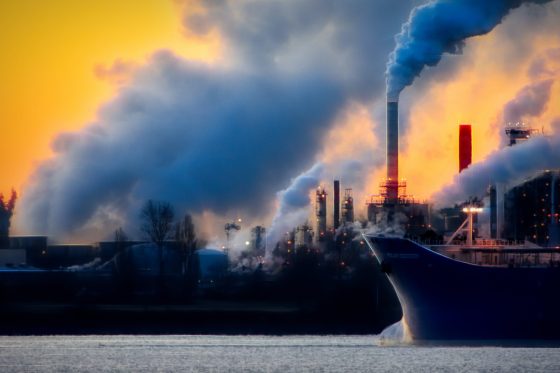
How is air quality in Media, PA? It may surprise you to know. I checked air pollution levels every day for three weeks. What I have found was shocking. Over a 21 day period last month, nitrogen dioxide (NO2) levels were poor for 15 days, fair for 4 days, and unhealthy for 1 day. There were no days when NO2 was rated good or excellent.

NO2, one of six widespread air pollutants, contributes to particle pollution and the chemical reactions that make ozone. NO2 is released into the atmosphere when fossil fuels (coal, oil, “natural” gas, diesel) are burned. Trucks, buses and cars are the largest sources of NO2 emissions. Coal fired power plants, oil refineries, facilities that extract, process or transport oil and gas, and industrial sites like the Covanta incinerator in Chester also add to NO2 levels.


NO2 is released indoors from wood fireplaces and any appliance that burns natural gas–dryers, heaters, water heaters, and stoves. This is why I replaced my gas stove with an electric stove. Contrary to popular opinion, I have not found it difficult to cook on an electric stove. In fact, I’m enjoying it.
Health Effects of NO2 Pollution
High levels of NO2 increase the risk of respiratory problems. Nitrogen dioxide pollution can cause:
- Inflammation of the airways
- Coughing and wheezing
- Difficulty breathing
- Respiratory infections
- Asthma attacks—especially in children
- Greater likelihood of emergency room and hospital admissions

Many research studies have found that NO2, as well as particulate matter (PM 2.5 and PM 10) and sulfur dioxide, were strongly associated with heart and lung damage, adversely affected pregnancy, and likely increased the risk of kidney damage, neurological damage, autoimmune disorders and cancer.
Where High NO2 Concentrations Occur
The highest concentrations of NO2 are found in large urban areas like the Northeast corridor (i.e. where we live). Levels are higher on or near heavily traveled roadways (think the Blue Route, I-95 and Route 1).
Who Is at Risk?
Everyone is at risk from health impacts of NO2 pollution. Those at higher risk are:
- Pregnant women
- babies, children and teens
- Adults over 65
- People with asthma, chronic obstructive pulmonary disease (COPD), cardiovascular disease, diabetes, or lung cancer
- Current or former smokers
- People in poorer neighborhoods
- People of color
What Can We Do about It?

The federal Clean Air Act imposed standards nationwide to reduce NO2 emissions. Power plants, industrial sites and vehicles are cleaner than they used to be. However, too many people are still exposed to unhealthy levels of NO2 pollution. That means we need to urge local, state and federal legislators to require stricter air pollution standards.
Make your home NO2 free by choosing electric appliances.
Consider purchasing an electric car. Electric cars do not release pollutants.
Please protect yourself on days when air pollutants reach unhealthy levels by wearing an N95 or KN 5 mask if you need to be outdoors.
By increasing the number of electric cars, trucks and buses on our roads and switching from gas to electric in our homes we will not only improve air quality, we will also have a positive effect on climate crisis. It’s a win-win.
Check out some of the projects the Transition Town Greater Media community is working on to lessen air pollution.
What to help reduce air pollution? Contact us at [email protected]

Thanks for tracking this, Marion! Here are a few more ideas.
– Try taking some form of public transit instead of driving.
– Carpool when you can.
– If you are physically up for it, try bicycling for short trips.
– Replacing a stove can be a big expensive undertaking. We are using a single-burner counter-top induction cooker, and using our microwave, toaster oven, and electric pressure-cooker/slow-cooker more, and find we rarely need to turn on the gas oven.
– We have clotheslines up all over the basement, and now rarely use the gas dryer.
– In a previous home, I used retractable clotheslines. They also helped avoid using the dryer.
– Our hot water heater is electric, but we still want to save energy. So we do all our laundry on cold. It comes out clean!
All good ideas, Robin. Thanks.